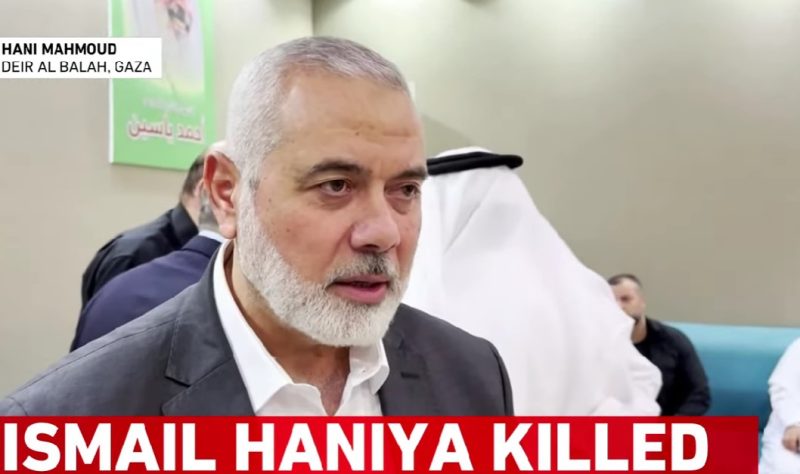
In a dramatic escalation of the Israeli-Palestinian conflict, Ismail Haniyeh, the head of Hamas’ political bureau, was assassinated in Tehran, Iran, on July 31, 2024. This incident marks a significant turning point,
as it is one of the highest-profile assassinations of a Hamas leader in recent years. The assassination has sent shockwaves through the region, with potential repercussions for the delicate balance of power and ongoing peace efforts.
Background on Ismail Haniyeh
Ismail Haniyeh has been a prominent figure in Hamas for decades, serving as the political leader since 2017. Known for his hardline stance against Israel and his efforts to strengthen ties with Iran, Haniyeh has been a key player in the group’s strategy and operations. His leadership has been marked by a focus on consolidating power within Gaza and maintaining the group’s militant activities against Israel.
The Assassination in Tehran
Haniyeh was in Tehran to attend the inauguration ceremony of Iran’s new president, Masoud Pezeshkian, when he was killed. The assassination occurred in the midst of heightened security, highlighting the boldness and precision of the operation. Both Hamas and Iranian officials have accused Israel of orchestrating the attack, although Israel has neither confirmed nor denied its involvement.
Israel’s Strategy and Past Actions
Israel has a long history of targeting Hamas leaders as part of its broader strategy to weaken the group’s operational capabilities. Previous high-profile assassinations include Ahmed Yassin and Abdel Aziz al-Rantisi in 2004, as well as more recent targets like Saleh Al-Arouri and Mohammed Deif. The assassination of Haniyeh is seen as a continuation of this strategy, aimed at disrupting Hamas’ leadership and reducing its ability to launch attacks against Israel.
Regional Reactions and Potential Repercussions
The assassination has elicited strong reactions from various stakeholders in the region. Hamas and Iran have vowed retaliation, raising concerns about a potential escalation in violence. This incident also complicates ongoing negotiations for a ceasefire and the release of hostages taken by Hamas in previous conflicts. The international community, including the United States, has urged restraint and called for efforts to de-escalate the situation.
Impact on Hamas and Palestinian Politics
Haniyeh’s death is a significant blow to Hamas, potentially leading to a power struggle within the organization. The group’s leadership will need to quickly appoint a successor to maintain cohesion and continue its operations. This internal instability could present both challenges and opportunities for other Palestinian factions, including Fatah, which has been engaged in a long-standing rivalry with Hamas.
Broader Implications for Middle East Stability
The assassination could have far-reaching implications for Middle East stability. The direct targeting of a Hamas leader in Iran underscores the growing entanglement of regional powers in the Israeli-Palestinian conflict. It also highlights the precarious nature of alliances and enmities in the region, with potential ramifications for other conflict zones, including Lebanon and Syria.
Conclusion
The assassination of Ismail Haniyeh marks a pivotal moment in the Israeli-Palestinian conflict, with the potential to reshape the dynamics of power and influence in the region. As tensions rise and the threat of retaliation looms, the international community must navigate a complex landscape to prevent further escalation and promote lasting peace.
